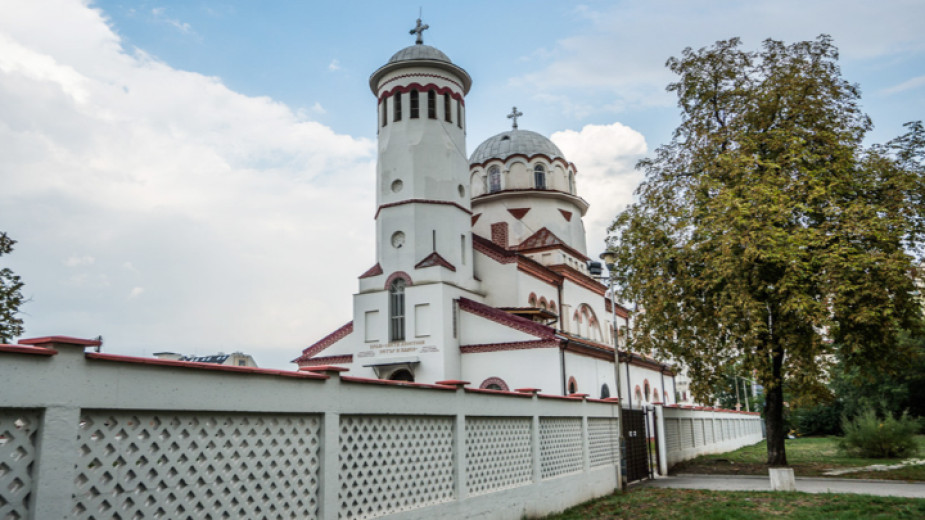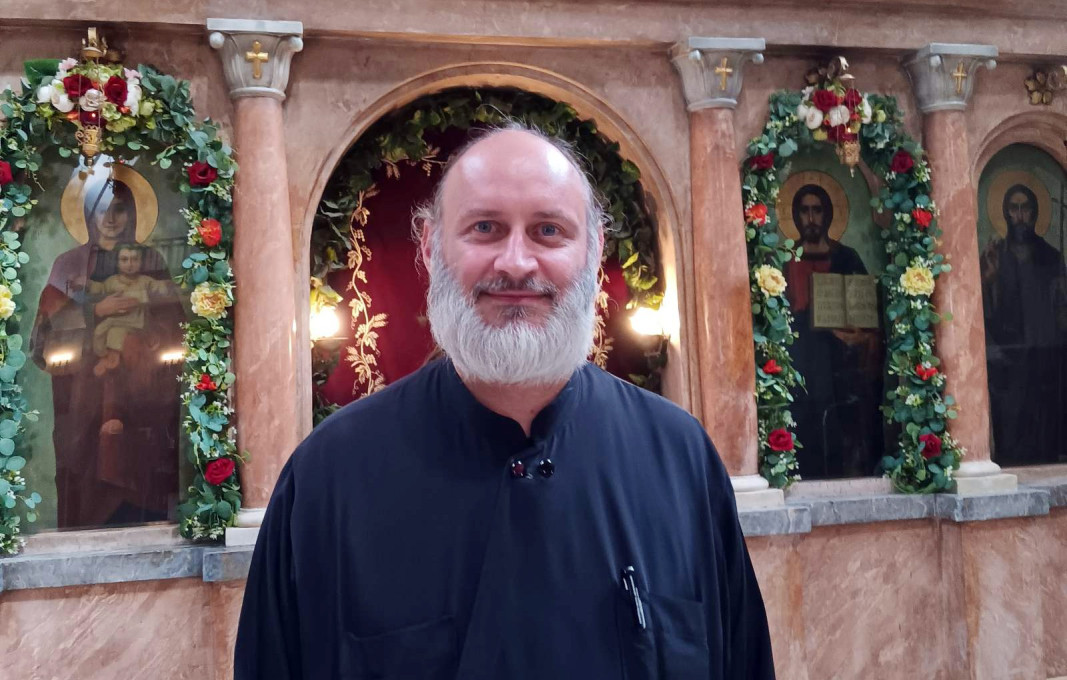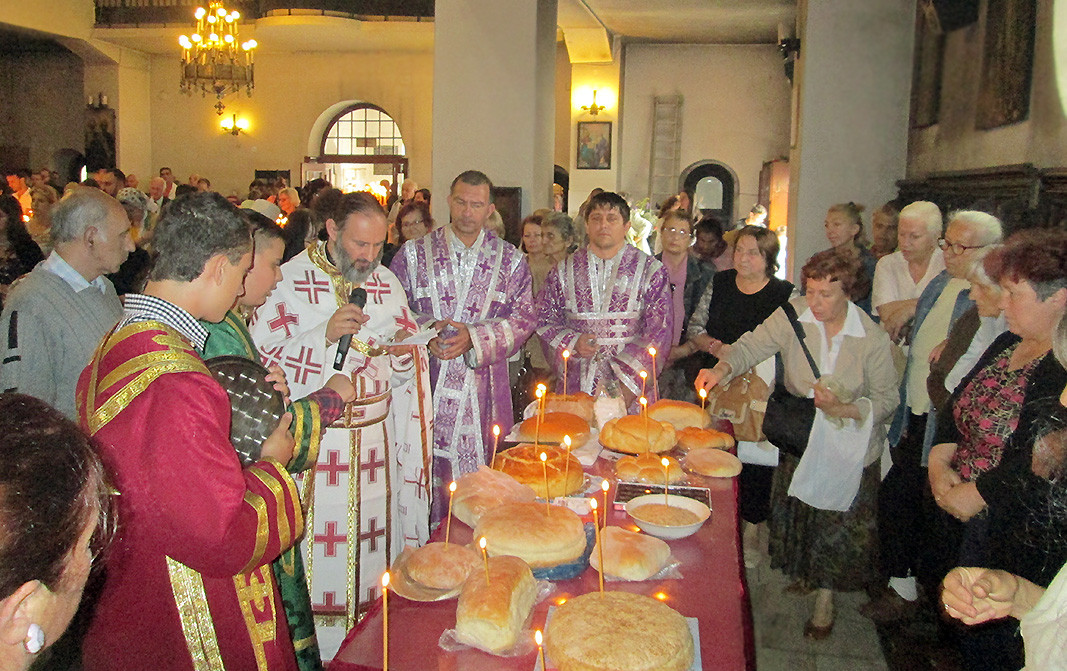 10
10
The fate of the Saints Peter and Paul church in Sofia has had its ups and downs, it has been through all kinds of uncertainties. It is perhaps one of the lesser known churches in the capital city, but it is also the only one named after the apostles – Saint Peter and Saint Paul – who are honoured on 29 June every year.
The construction of the church was started in Sofia’s residential area Razsadnika in 1929. Before that time there was a very small church on the same spot, built with the help of donations from the refugees from Macedonia who were coming to live in that part of Sofia at the time. That church had grown too small for all the people who came here, so a decision was made to build a bigger, more spacious church. In the space of five years – from 1929 until 1934 – a new, solid church with high domes was erected, covering an area of almost 450 sq. m. Even then the church had social activities like a food pantry. But then came the communist coup in the country in 1944 and many of the church’s activities had to be abandoned. The neighbourhood changed.
Clergyman Kiril Didov has been serving at the Saints Apostles Peter and Paul church for 20 years and now chairs the church board. “What I found was a church in dire condition, church services were on Sundays only, and not every Sunday at that, because there was only one priest,” says Father Kiril Didov and adds:

“When I came to the church we started major renovation works – of the floor, of the installation. We painted the whole church but because of the candle smoke the white paint was quickly tarnished. We get by mostly from the sale of candles and from donations but, unfortunately, the attendance is only on major feast days, the rest of the time the church stands empty. But people know that the church’s patron saints’ day is on 29 June when we honour the memory of the saints Peter and Paul, so it is a day when people throng to the church.”
The first settlers in this parish were refugees from Northern Greece (in the 1920s) from lands that were once Bulgarian and which, because of wars or other world events, became foreign territory. So, part of the population moved inland.

“When people go to live somewhere else, they usually choose the name of the church that they had in their own town or village. But seeing as there is no other church in Sofia named after the Saints Peter and Paul (though there is such a monastery in the village of Gorni Lozen) the scales were tipped in favour of such a decision – to dedicate the church to the chief apostles,” says Father Kiril Didov:
“They are chief apostles because they are among the most revered apostles, with each demonstrating their love of the Lord, but also their human qualities and human shortcomings. That is what brings them closer to us, ordinary humans. Saint Peter denied Christ three times – and that is very typical of us, humans to give in in the face of difficulties because human nature is weak. But afterwards he zealously spread the word of God, and ultimately died a martyr in Rome,” says Father Kiril Didov. “Saint Paul was the last of the apostles to have been summoned by God, but only when Christ had died on the cross and was resurrected and the apostles had begun preaching around the world. Before calling himself Paul he persecuted Christians. But on the road to Damascus he was blinded by a light and he heard the words of God: "Saul, Saul, why do you persecute me?” Paul’s first words then were to ask what he should do, and that is a message – when we have been surrounded by sin, we must ask what we should do to change that so we can be useful to our own selves and the people around us.”
Photos: apostolite.com, Gergana Mancheva, BGNES
The Bulgarian Land Forces are celebrating their holiday today. A statement from the Ministry of Defense's press center notes that November 19, 2024 marks 139 years since the glorious victory at Slivnitsa and 146 years since the establishment of..
The book "Ten Great Friends of Bulgaria" by journalist Milena Dimitrova will be presented this evening at 6pm at the Sts. Cyril and Methodius National Library in Sofia. The book recounts the lives of ten people of different nationalities and eras, whose..
The Getty Museum in Los Angeles, USA, is hosting a webinar today entitled Who Were the Thracians? Professor of Classical and Ancient History Matthew Sears will discuss the Thracian legacy and its influence on ancient Athens. Sears is the author of..
The Feast of the Epiphany - the entry of the Theotokos into the Temple - is one of the oldest and most revered feasts in the Orthodox world. It was..
The Museum of the Jewish People in Tel Aviv , Israel, today commemorates the 130th anniversary of the birth of Dimitar Peshev, a righteous man of the..
On November 22 and 23, the Bulgarian Orthodox Church will solemnly celebrate the 100th anniversary of the consecration of the Patriarchal Cathedral "St...

+359 2 9336 661
